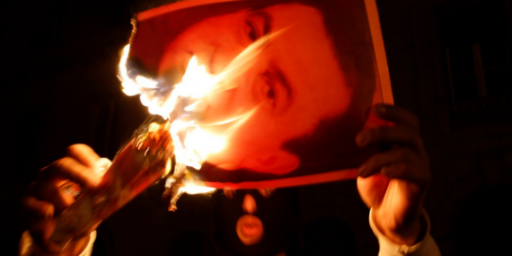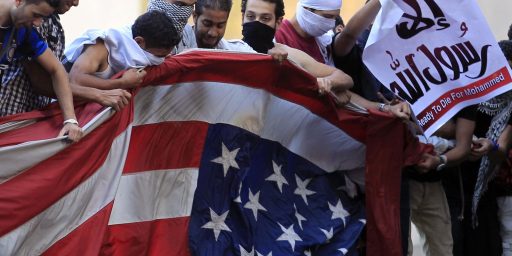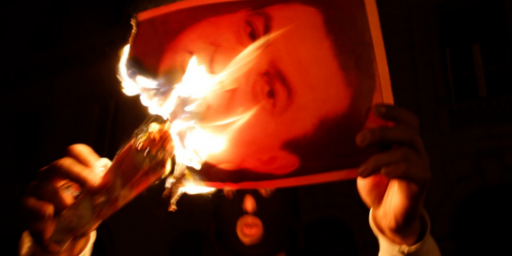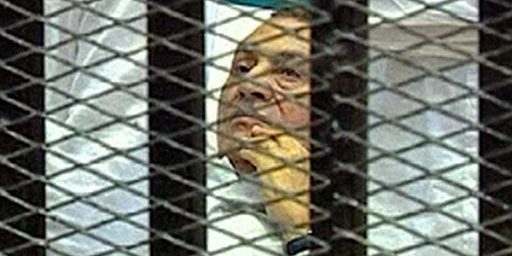WONDERS OF WAR
John Leo makes some interesting observations about how the Iraq War will improve US relations with the Arab world, a rather counterintuitive position:
Along the way, conventional wisdom suffered yet another series of defeats. No wave of terrorism greeted the American campaign, though fanatics will surely strike again. Neither foreign troops nor suicide bombers paralyzed U.S. and British forces. Saddam Hussein could not mount a deadly and costly Stalingrad defense in Baghdad. The Arab “street” did not rise. Many people insist that Arabs are being colonized again by western powers in search of oil. No surprise there. But there is dissonance in that message now. It is hard to explain that the dread crusaders have taken over again when everyone can see the Iraqi people exulting over fallen statues of Saddam.
Erode rage. For once in the Middle East, the United States has intervened on behalf of the people, not to prop up yet another regional autocrat. This profoundly liberal step could alter the usual antiwestern discourse in the region. It may gradually erode what Fouad Ajami calls the “road rage” of a thwarted Arab world steeped in “a political tradition of belligerent self-pity.”
Some voices in the Arab world are now willing to say the freedom of one nation can have an impact on another. This “could be the beginning of transformation in the Arab region,” said Tarek al-Absi, a Yemeni university professor. It is a transformation, he added, that can’t occur without western help.
Many hope the first “demonstration effects” will be felt in Iran, where reformers hope for a breakthrough against a repressive regime. Anxiety must be rising among the area’s dictators. Egypt’s Hosni Mubarak is no Saddam Hussein, but there are pictures of Mubarak all over Egypt, and the decapitation of Saddam statues in Iraq must give him pause. Danielle Pletka, a Middle East expert at the American Enterprise Institute, said, “The Middle East is replete with leaders who have not had the best interests of their people at heart. They should look at the Iraqi people and worry.”
I’m hopeful but, characteristically, skeptical. We’re up against autocrats that control their people’s access to information and use religious fanaticism to manipulate public opinion. So, while I think the war will go a long way to improving our influence with the governments of the region–Syria being the first test case–I’m less optimistic that it’ll create a huge popular movement.
(Hat tip: RealClear Politics)





